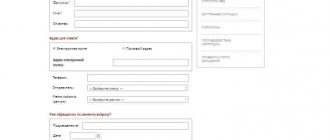National ML/TF risk assessment
In accordance with the FATF Recommendations, countries must continually assess the risks of money laundering and terrorist financing in order to develop an adequate understanding at the national level of the risks and threats to the financial system and economy, as well as the negative consequences that these acts carry, and taking adequate response measures.
In this regard, Rosfinmonitoring (RFM) prepared the above-mentioned documents. The objectives of a national money laundering risk assessment are:
- identification of the most commonly used methods of laundering criminal proceeds;
- identification of weaknesses of the national anti-money laundering system;
- creating a uniform understanding of risks among all participants in the anti-money laundering system;
- development of specific measures and effective allocation of resources to minimize identified risks.
How does the process of legalizing illegal funds work?
Like any type of economic fraud, money laundering occurs in several stages. This multi-step process allows fraudsters to avoid the attention of law enforcement agencies. In general, the entire money laundering procedure can be divided into the following stages:
1. Obtaining money through criminal means.
2. Introduction of illegal income into the financial system. There can be a huge number of variations here, in particular, dividing the amount of money into smaller deposits, buying antiques, precious metals, buying up securities, etc.
3. Transfer of capital. At this stage, money is removed from the source of profit by placing deposits in offshore zones and other methods.
4. Final integration stage. At this stage, money appears on the horizon again, but in the form of completely legal money. Fraudsters can buy jewelry, open fake business companies, and much more.
Risks
Risks are divided into categories (high risk, increased, moderate, low).
| Type of risk | Risk |
| High risk | Use of nominee legal entities (“fly-by-night”) |
| Use of fictitious foreign economic activity | |
| Use of foreign legal entities and trusts | |
| Using cash | |
| Use of electronic money | |
| Using virtual currency (such as bitcoins) | |
| Participation of individuals affiliated with officials | |
| Increased risk | Use of banks, MFOs and CCPs |
| Using the market for precious metals and precious stones | |
| Using money transfer systems | |
| Use of the securities market | |
| Use of cash moved across the border of the EAEU | |
| Moderate risk | Use of the insurance sector |
| Use of real estate | |
| Using Russian Post services | |
| Use of notary services | |
| Use of the leasing sector | |
| Use of mobile operator services | |
| Using payment acceptance operators | |
| Low risk | Use of mutual funds, non-state pension funds, auditors, lawyers, lawyers, accountants |
| Use of informal money transfer systems (such as Hawala) |
Let us dwell in more detail on some types of risk and tell you how the state intends to combat these factors.
Actions of bank employees
Employees of financial institutions try to protect themselves: they may deliberately increase the percentage for withdrawing funds or refuse to issue these funds altogether, confident that an organization with a dubious reputation is unlikely to sue them.
In the summer of 2022, another way to counter such money laundering was introduced: a daily limit on money transfers. If the owner of a bank card receives more than 600,000 rubles into his account, employees of the financial institution have the right to request information about the source of such high income. In addition, at the first suspicion of an attempt to launder income, they may refuse to serve such a client and block his account.
Shell companies
The use of nominee legal entities is a very common method of laundering criminal proceeds, notes Rosfinmonitoring.
The state is implementing a set of measures to eliminate nominal legal entities: mechanisms have been introduced to prevent the registration of such companies and the use of front individuals for this.
In addition, a mechanism has been introduced to include legal entities in a unified blacklist of banking clients who are denied transactions and the opening of a current account.
Thus, in 2022, banks made 620 thousand decisions to refuse to carry out operations, which made it possible to stop the withdrawal of more than 181 billion rubles into the shadow sector, RFA boasts.
The Federal Tax Service of Russia is working to verify the authenticity of the Unified State Register of Legal Entities. Another measure is the ASK VAT-2 system, which allows you to identify actions aimed at minimizing VAT payable to shell companies and fictitious invoices.
How to withdraw money from a blocked current account
An entrepreneur who is faced with blocking of accounts has a limited number of ways to receive money: he can transfer it to another bank, receive money for payments to individuals or through a writ of execution. Each of these methods is accompanied by certain risks, financial and time costs.
Alexey Ilyin, head of the department for work with financial institutions of the ATLANT legal group
Cases of blocking current accounts of legal entities and individual entrepreneurs by banks with reference to Federal Law No. 115-FZ have become more frequent. There are enough formal grounds for blocking an account, mainly risky operations, such as:
- incoming and outgoing payments with different VAT rates or outgoing payments without VAT;
- making payments that do not have a clear economic meaning;
- no current expenses on the current account (utilities, rent, general business expenses, etc.);
- withdrawal of funds in cash;
- low tax burden (share of taxes paid from the total turnover on the account), etc.
Regardless of whether the account of a legal entity or an individual entrepreneur is blocked, you can use a certain set of solutions to this problem. Blocking an account and terminating a banking service agreement does not necessarily imply the entry of an entrepreneur or.
If the bank offers to terminate the agreement after analyzing the account, it is enough to transfer the money to another bank account. If you receive instructions from the monitoring service, you can use the following methods:
- Transferring funds to an account in another bank
Risk - sending a letter from the bank about blocking the account under 115-FZ with payment.
A possible result is account blocking.
Costs - the bank’s percentage for the transfer of funds blocked under 115-FZ, which starts from 20% depending on the bank.
Defense - the opportunity to challenge the inflated percentage in court.
- Withdrawal of funds under the guise of payments to individuals (salaries or other payments)
Costs - from 13% personal income tax excluding extra-budgetary funds.
Even if a company goes bankrupt and the tax is not paid, personal income tax must be paid to the budget by the recipient of the income (an individual).
Risk - if a large amount is paid, a criminal case may be initiated under Art. 198 of the Criminal Code of the Russian Federation.
- Receipt of funds under a writ of execution
Costs: state fee to the court.
Disadvantages - a long period of consideration of the dispute (even with a settlement agreement).
- Through a notary’s writ of execution (by notarizing a loan agreement between a legal entity and an individual)
In case of non-compliance with the terms of the agreement (return of funds to an individual), the notary makes an appropriate inscription on the agreement.
The document has the force of a writ of execution and can be sent to the bank without going to court.
Time period - processing a loan for a period of 3 days, if there is no return, filing a claim, after 14 days an inscription is made. Sending documents to the bank and receiving funds after 7 days to the individual’s account.
Costs - notary fees (the percentage depends on the amount of funds, approximately 3-5%).
Risks - blocking an individual’s account for up to 45 days (if the bank has doubts about this operation).
Only systematic analysis of incoming and outgoing payments, mandatory implementation of business expenses on the account, control over the share of taxes paid on this account (tax burden), exclusion or minimization of payments to companies operating in high-risk sectors of the economy (according to the Central Bank) and compliance of payments with codes OKVED will help you avoid conflicts with the bank and account blocking.
Svetlana Kulagina, General Director
If your current account is blocked, follow the following procedure:
1. Urgently contact your bank manager and, upon his request, provide a complete package of documents to confirm the economic feasibility of the payment.
2. Even if the bank refuses service, it does not have the right to confiscate the client’s money and refuse to return it. You can transfer money to your account in another bank or return the money to the supplier. You can open a deposit account in another bank in advance. In this case, the transfer of funds from a blocked account to an account in another bank is agreed upon individually.
The money is transferred to an account in another bank, but it will come from the first bank with the note “due to blocking of the account for such and such a reason” or “transfer of funds when closing the account,” and this is a stop factor in some banks. Another bank may also block the current account, request documents, and understand the situation.
There is a high probability that the bank will not approve this deposit transfer and will require a transfer fee of 7% to 20%. Withdrawal without commission will be possible only if all documents are provided upon request.
3. It is possible to write off funds from a blocked account in an indisputable manner according to a writ of execution (for example, by providing a writ of execution for arrears of wages). Money is debited within 3 business days. However, this method has already managed to “defame” itself and is therefore monitored and verified by financial monitoring.
4. Do not close your bank account at its request, since closure under 115-FZ will not allow you to open an account in another bank.
5. Submit a written request to the bank that refused to service you, and to those banks that refused to open an account. You need this information, firstly, to eliminate the causes, if possible, and secondly, to complain to supervisory authorities and defend your rights in court.
6. Contact the Bank of Russia with a complaint about the actions of a specific bank that does not open an account and has unlawfully applied the norms of current legislation. On March 30, 2022, a new procedure of the Central Bank of the Russian Federation 29-MR came into force, according to which, in the event of a refusal of a transaction and blocking of an account, the entrepreneur still has the opportunity to appeal - he has the right to file an application with the interdepartmental commission created under the Central Bank of the Russian Federation.
The period for consideration of the application by the interdepartmental commission cannot exceed 20 working days from the date of application. But she will understand the case in detail: request from the banks a reasoned justification for the reasons for refusing the client, which the bank must prepare within 3 days.
If the interdepartmental commission considers the reasons for the refusal to be illegal, the bank is obliged to open an account or conduct a transaction that it considered dubious within 3 days after receiving a response from the commission, and there will be no grounds for blacklisting the company.
You can’t trust those who promise to remove them for a fee.
Firstly, only a staff member of the Central Bank management who directly works with these lists can remove someone from the blacklist. Secondly, the Central Bank list is sent to all banks, that is, the information in banks will be updated only after a new Central Bank mailing.
A confused entrepreneur may be offered to open an account for a company on the stop list for money. You need to understand that they can open an account for you for money, but they will not let you work on it. At the very first operation, the compliance service will “block” you, and subsequently it will be up to you to decide this issue.
7. You can implement your own compliance control service at your enterprise in advance or outsource this function, for example, to a consulting company. This will prevent violations of the law and protect the interests of business through compliance with appropriate standards of behavior in the financial market.
To avoid being blacklisted and reduce the risk of account blocking:
- Follow the requirements of the Central Bank guidelines 18-MR and 19-MR regarding the tax burden.
- Check the new counterparty before signing contracts. Do not cooperate with unscrupulous contractors, this may have a bad effect on your reputation. To work with counterparties, it is convenient to have your own “fish” contracts, which already contain all the necessary clauses.
Check your counterparty in one click
To learn more
- Accept payments according to your OKVED. If you have expanded your scope of services, make changes to your registration data as an individual entrepreneur or legal entity and send new documents to your bank. For example, Financial Monitoring may be interested in the income of a company that opened to sell wholesale electrical goods, but suddenly received payment for advertising services.
- Upon shipment of goods or provision of services, be sure to prepare primary documents: delivery notes, acceptance certificates, invoices and other documents that will confirm the fulfillment of the terms of the contract. Specify the purpose of payments in detail and demand the same from your partners.
Financial monitoring will definitely pay attention if the payment description contains something non-specific, without indicating document numbers, for example, simply “Consulting services for April.”
- Pay taxes and contributions from your main account. If you have accounts in different banks, pay from them in turn or, for example, advance payments to the budget from one account, and insurance premiums from another. This is necessary so that you are not considered a shell company that transferred money through its account and disappeared.
- Keep all documents in order: contracts, invoices, etc. If the bank has asked you for documents regarding the transaction, immediately provide the information upon the bank’s request.
Send reports to all regulatory authorities
To learn more
Alexey Golovchenko, managing partner of the legal
When blocking an account, banks are guided by Federal Law No. 115 “On Combating Money Laundering and the Financing of Terrorism,” that is, the person whose account was blocked is suspected of money laundering and aiding terrorism.
If there is any suspicion of questionable transactions, it is the transaction that should be blocked, and not the entire account, but banks are insured against the indignation of the Central Bank due to their imprudence and therefore block entire accounts.
I would advise entrepreneurs to open several accounts so that blocking one of them does not paralyze all work, and also to control the purpose of payments and the purity of transactions for amounts over 600,000 rubles, because they are the ones that are under the watchful attention of banks. It is imperative to check your counterparties, since suspicions that fall on them can negatively affect your activities.
Don’t forget that during the period your account is blocked, the bank can use your funds for free and make a profit from it, so build a relationship with the bank, try to build a dialogue and understand what the stumbling block is.
At the same time, contact the interdepartmental commission of the Central Bank to get out of the Financial Monitoring blacklist, which you automatically end up on when your account is blocked. The last resort will be to go to court if it is still not possible to reach an agreement with the bank. In this case, the bank will have to prove to the court that the blocking of your account was not unreasonable, but no one will reimburse you for the funds spent in court, no matter the outcome.
Ilya Gatikoev, arbitrator, tax consultant
The bank has the right to suspend a client’s transaction, with the exception of transactions for crediting funds, for no more than five working days. If during this period the bank does not receive a resolution from Rosfinmonitoring to suspend the relevant operation for an additional period, the bank must carry out this operation.
It is now impossible to protect yourself 100% from bank blocking of funds. It is better not to participate in financial transactions with dubious counterparties and not to ignore the bank’s requests to provide documents confirming the legal origin of funds, since in this case there is a high risk of refusal to carry out the transaction.
It is possible to resolve the situation with massive restrictions on the rights of consumers of financial services only through detailed regulation of the actions of banks, however, neither Rosfinmonitoring nor the Central Bank of the Russian Federation is currently interested in taking a law-making initiative, since, in their opinion, the massive number of complaints from individuals due to the blocking of accounts greatly exaggerated by consumers.
The passivity of regulatory structures when it comes to consumer rights also leads to such a pressing problem as the return of unclaimed funds from special bank accounts.
If the client does not appear to receive the balance of funds within 60 days from the date of termination of the bank account agreement, the bank is obliged to credit the funds to a special account with the Bank of Russia. Moreover, after closing the client’s bank account, only the bank has the opportunity to contact the Central Bank of the Russian Federation with an application for the return of the balance of funds from the special account.
Currently, as in the case of anti-money laundering, there is no huge layer of by-laws that would establish the procedure for returning such funds from the account, which is why people have questions: who can oblige the bank to open such a special account with the Central Bank of the Russian Federation; what is the procedure for returning funds from the Central Bank of the Russian Federation to the servicing bank; what is the mechanism for returning funds from a bank account to a client; what are the deadlines for fulfilling the client’s requirements, etc.
As a general rule, the algorithm for returning money from a special account of the Central Bank of the Russian Federation may currently look like this:
- On behalf of the client, an application is submitted to the servicing bank demanding the return of unclaimed funds.
- As a rule, banks refuse such requests or ignore them altogether on the grounds that the obligation to return unclaimed funds is not directly established by law and its procedure is not regulated.
- In this regard, after the deadline for satisfying the claim has expired, you will need to file a lawsuit against the bank for the return of illegally withheld funds.
Andrey Illarionov, senior lawyer at AVT Consulting
The organization has the right to appeal the decision to take interim measures, then it can be canceled by a higher tax authority or by a court decision. The most logical action is for the organization to appeal to the arbitration court with a demand to declare the decision to take interim measures in the form of suspension of transactions on the current account invalid. However, taking into account the fact that the arbitration process takes a lot of time, in addition to an application to invalidate the decision of the tax authority, it is advisable for the taxpayer to file an application to the court to suspend the decision to block current accounts.
In order to begin the arbitration process, the taxpayer must go through the appeal procedure with a higher tax authority. Only after consideration of his complaint, for which, according to the Russian Federation, a period of one month is allotted, will the taxpayer have the right to appeal to the arbitration court. Unfortunately, there is a certain gap in the legislation, since the taxpayer will not be able to use his current account for a whole month.
The application must be accompanied by documents proving the position of the organization, that is, confirming debts to contractors, salary debts. For consideration of interim measures, you need to pay a state fee in the amount of 3,000 rubles. If the court, for any formal reason, refuses to take interim measures to the organization, you should correct the shortcomings indicated by the court in the application and apply to the court again. The Arbitration Procedure Code of the Russian Federation does not limit the number of appeals in cases of interim measures.
Dmitry Milyukov, head of corporate legal department
When you discover that your current account is blocked, you must first find out the reasons and grounds for the blocking.
1. Seizure of funds in the account
A certain amount is subject to seizure, and not all funds in a bank account, so the account owner can freely dispose of funds, except for the amount for which the seizure is imposed.
Courts of general jurisdiction, arbitration courts, and bailiffs can seize funds in bank accounts.
In our practice, a bailiff once violated the rights of our client by blocking the same amount in two accounts in the same bank. Since the litigation involved only real estate, there were no orders to seize the accounts. But the bailiff sent a request to the bank to seize funds in all bank accounts of our client in the amount of about 30 million rubles. Thus, the bank blocked 60 million rubles. in the accounts, and since such money was not available in the accounts, it was displayed in the mobile bank as a debt.
We filed a statement with the bailiff about the illegality of his actions, and the funds in the accounts were unblocked the very next day.
2. Suspension of account transactions, as well as electronic money transfers
The Federal Tax Service Inspectorate may suspend transactions on a bank account if you have not submitted a tax return within the prescribed period or have not paid insurance premiums, penalties, or fines.
To lift the arrest and cancel the suspension of operations on the account, in some cases, the account owner only needs to comply with the requirements of government authorities, for example, provide documents or pay off the mortgage. In other cases, for example, when a seizure is imposed as an interim measure or in the case of illegal, in the opinion of the person, demands of government authorities, the account owner has the right to challenge such arrest or suspension of operations on the account in court.
3. Suspension of a specific operation in accordance with No. 115-FZ of the Russian Federation
Within the framework of the powers granted by Federal Law No. 115-FZ of August 7, 2001 “On Combating Money Laundering and the Financing of Terrorism,” the bank has the right to suspend the operation for five working days by notifying the Interdepartmental Commission for Combating the Financing of Terrorism, which may extend the period of suspension of the operation to 30 days.
If the bank determines that an upcoming transaction is related to a dubious transaction, then it has the right to request from the account owner all documents and additional information related to this transaction.
If, after providing documents and explanations, the bank still refuses to perform the operation, the account owner can challenge such refusal by contacting the interdepartmental commission at the Central Bank.
The total period for consideration by the interdepartmental commission of the application, documents and information confirming its position cannot exceed 20 working days from the date of the applicant’s application. More details about the procedure for considering an application and the requirements for the application can be found in Bank of Russia Directive No. 4760-U dated March 30, 2018.
The interdepartmental commission informs the applicant and the bank for which it is mandatory about the decision made no later than three working days from the date of its adoption.
If the decision of the interdepartmental commission was not in favor of the account owner, then he has the right to appeal it in court.
Cash
In terms of laundering criminal proceeds, the risk of using “cash” is also high. There are facts of the use of bank cards issued in the name of fake individuals, corporate bank cards in schemes for laundering criminal proceeds, in particular, drug proceeds and proceeds from cyber fraud.
Cashing out processes also ensure the functioning of the shadow economy (payment of “gray” salaries, tax evasion). A significant share of cash circulation in the economy is determined, among other things, by the economic model and characteristics of the country. The anonymity of payments using cash, as well as the ability to make large purchases for cash, make this method popular when committing crimes and, in addition, complicate the investigation process. The measures taken by the state to combat this phenomenon basically coincide with the measures taken to combat fly-by-night scams.
In recent years, the volume of cash withdrawals in the banking sector has been reduced by 3.8 times - from 1.2 trillion rubles to 326 billion rubles.
Additional money laundering schemes
Criminals invent the simplest, but nevertheless effective systems for money laundering. In some cases, it is completely impossible to legally track the transfer of funds. But the most effective systems are considered to be those in which the form of funds changes from cash to non-cash and vice versa. Such schemes include cashing out money through electronic terminals, lottery winnings, as well as purchasing winning lottery tickets from the owners for an amount significantly exceeding the amount of the winnings.
One of the most popular money laundering schemes is considered to be transactions with antiques. This type of money laundering scheme is considered one of the most common. Let's say, if you find a painting by Salvador Dali in the attic worth a couple of million greenbacks, you can safely sell it completely legally. The same applies to rare jewelry. Moreover, in this case they are bought according to the actual weight of gold, at least documented. But in reality, the seller will receive a much larger amount of money in the envelope.
Electronic money
Electronic means of payment are used in payments for drugs and subsequent laundering of proceeds. Attackers use non-personalized (anonymous) ESP (the owners of which are individuals) to carry out illegal financial transactions by transferring funds from one anonymous electronic wallet to another. There are cases of using ESP registered in the name of the so-called. "drops", i.e. persons who are not aware of the nature of the use of these tools, including in money laundering schemes, from committing fraudulent actions with the EPS themselves (cyber fraud).
In order to further improve measures to combat cyber fraud and cyber theft, criminal liability has been strengthened for theft of someone else's property committed from a bank account, as well as electronic funds (imprisonment for up to 6 years). Sanctions for fraud in the field of computer information have been adjusted. Instead of arrest for up to 4 months, fraud using ESP is punishable by imprisonment for up to 3 years. It is planned to legislatively prohibit individuals from receiving cash using non-personalized ESP.
Basic stages of money laundering
Money laundering is carried out in three stages:
- Peeling. Initially, money obtained illegally is “diverted” from its real source. For this purpose, funds are withdrawn abroad, transferred to the accounts of individuals or legal entities.
- Accommodation. Funds are introduced into the legal cash flow by any available means. As a rule, at this stage the attacker already has fictitious confirmation of the source of their income.
- Integration. This is the final stage when the appearance of legitimate possession of wealth is created. The owner of funds can freely withdraw them, transfer them to any accounts, and purchase various items and real estate.
After passing through three main stages, the money is reinvested in illegal activities. The process can be repeated an unlimited number of times or carried out once, to legalize a large amount and spend it further, for example, a bribe.
Sometimes some steps are skipped. For example, if the money is immediately deposited into a bank account, its implementation is no longer required. But this is a risky step, since the bank will definitely inquire about the origin of the income and without documentary evidence the account may be frozen. Also, integration is not always carried out, that is, the “laundered” money remains in different accounts and is used as needed. In some cases, the situation requires you to wait a certain period of time before proceeding to the third stage. But concealing the true source of funds and obfuscating the tracks is mandatory.
Fight against money laundering
Experts believe that the fight against money laundering should be carried out at the state level. Thus, in 2003, our country joined an international organization that actively fights money laundering - FATF (Financial Action Task Force on Money Laundering). In 2006, Russia passed a law according to which all foreign citizens entering the territory of the Russian Federation are required to declare the imported currency. Since 2013, measures have been taken to deoffshorize the economy.
So, money laundering through bank cards is one way to hide your income and not pay taxes. Both ordinary citizens (owners of plastic cards) and bank employees can become participants in such a scam. For every individual, legal entity and official convicted of a criminal conspiracy, the law provides for administrative or criminal punishment.










